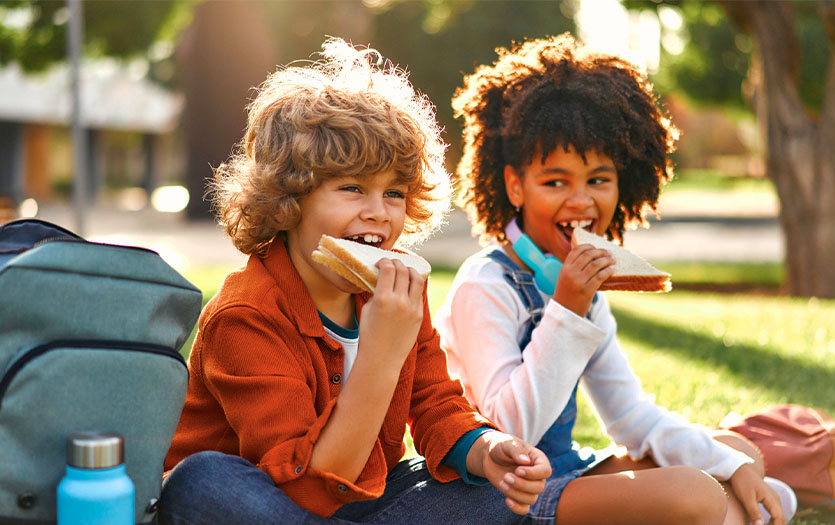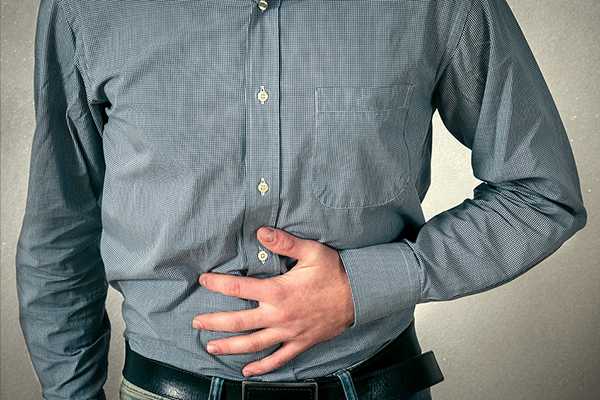
This post was written by Brian Davault, MD, PPG – Family Medicine.
There are many reasons for consuming food. From a practical standpoint, our bodies need energy from calories in order to function. From a social standpoint, we often celebrate birthdays and other celebrations with meals and special foods. From an emotional standpoint, some people eat in response to negative emotions. We’ve all seen that scene in a movie when someone reaches for a pint of ice cream after a breakup or bad day at work. But how do these emotional impulses toward food apply to life in the real world and, more importantly, our health?
The risk of emotional eating
When our bodies take in more calories than they are using, the extra energy is stored as fat. Eventually, this can lead to an individual being overweight or obese. Obesity is a complex disease, and emotional eating is only one small part of this disease. Not everyone with the disease of obesity has an emotional aspect or motivation related to eating, but for those who do, it can make dealing with this disease very difficult.
Why does emotion affect food consumption?
Both adults and children with obesity often have higher rates of depression and anxiety than those without obesity. Those emotions are often difficult to deal with. One way that many people cope is by eating food. This may not make sense, until you realize that food can often activate our brain’s reward pathway, giving positive feelings, at least temporarily.
For children, it can become very easy to associate food with reward and pleasant emotions. For example, after a baseball game, it’s quite common to celebrate with a treat of ice cream. When a classroom does a good job on a project, it’s not uncommon to have a pizza party to celebrate. These celebrations are not a bad thing; however, one can see how easy it may be to associate certain foods with positive emotions.
Many children with obesity struggle with anxiety and depression. In the face of these negative emotions, it can be understandable that, if eating a favorite snack causes positive emotions, it becomes more rewarding to continue eating that food. This behavior in children and adolescents often exhibits itself in a pattern of eating in response to stress or negative emotions. While this sometimes happens during childhood, it is more commonly seen in adolescence. Many of the children and adolescents with this behavior tend to suffer from depression. This is not a behavior that should be dealt with by limiting food and calories, but rather by addressing the root of the issue. The focus should be on regulating emotions and practicing mindfulness. If you notice this behavior in your child, it is good to discuss this with your physician. Oftentimes, therapy will be a helpful tool in dealing with emotional eating.
Binge eating disorder
There are many different disorders of eating patterns that can be related to emotional eating. One of the most common is known as “Binge Eating Disorder,” and occurs in both children and adults. This is when someone eats a large amount of food multiple times a week. People who suffer from this condition will often feel shame and guilt when they overeat, as well as feeling that they have no control over themselves.
This is often a difficult condition to overcome by oneself. Often, a physician and a therapist can help in dealing with this pattern of eating. A therapist can help with teaching new strategies to handle emotions and behaviors, while a physician may find that medication is needed in order to help treat this condition.
If you notice that your food consumption seems to be related to your emotions, specifically, negative emotions, there are a few steps you can take. One way that you could minimize the effect that your emotions have on your eating habits is to practice mindfulness. This is the practice of concentrating on the moment and acknowledging and accepting your emotions and thoughts.
If you find that you often reach for a snack when you are feeling sad or anxious, it may help to speak with a counselor or have an appointment with your physician. Depression and anxiety can be serious medical conditions and addressing them and having them treated will help you to be healthier overall.
If you or someone you know seems to have an ongoing negative relationship with food, consider asking your provider for a referral for an eating disorder assessment. Park Center, which operates as part of the Parkview Behavioral Health Institute, offers individual and group therapy for those who are ready to change their eating patterns.



